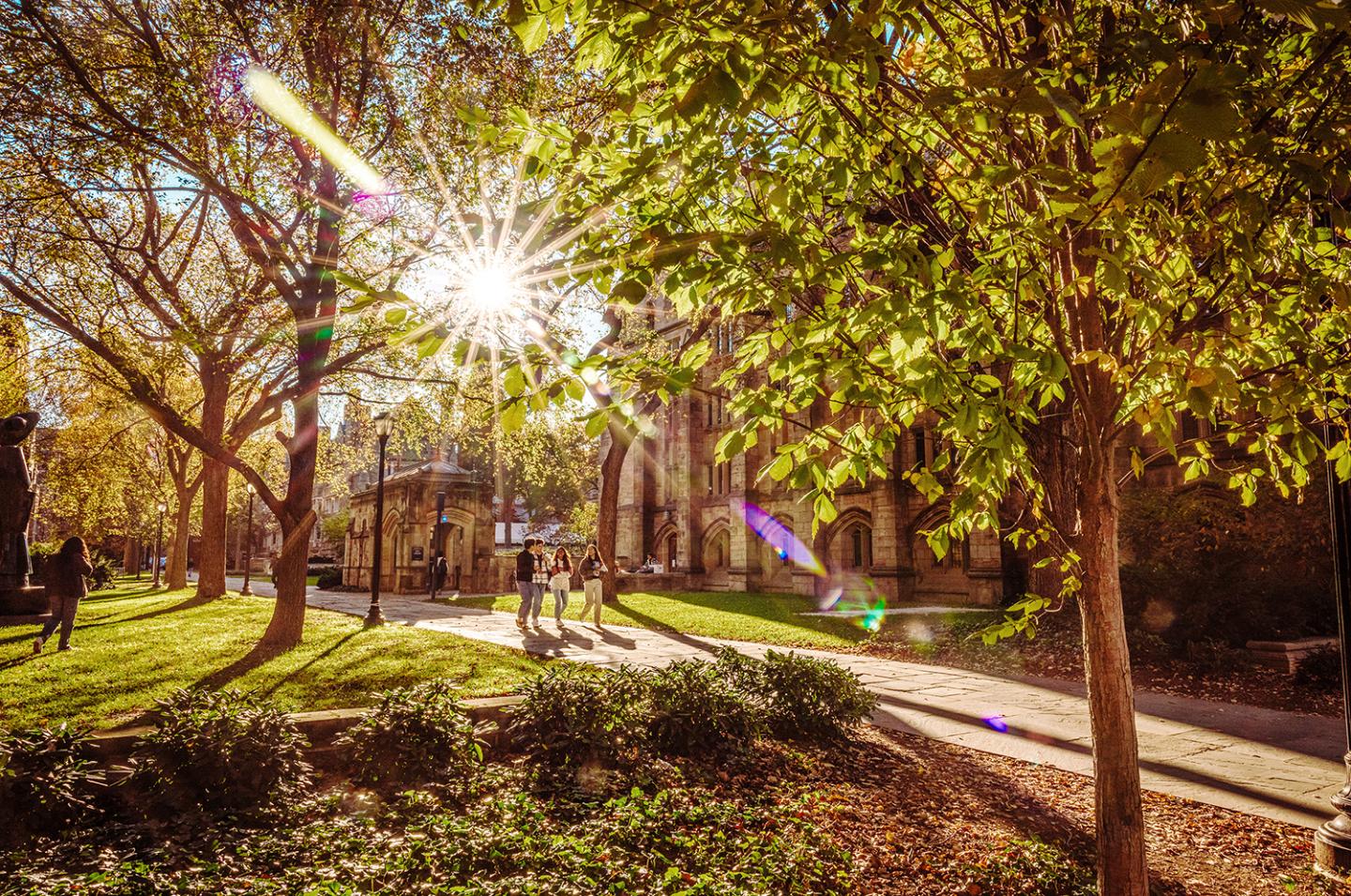Yale University has announced a historic goal of raising $1.2 billion for students in an ambitious effort to make a Yale education more affordable and accessible. The fundraising initiative, focused on new giving for scholarships and fellowships, is included within Yale’s $7 billion For Humanity campaign, which continues until June 2026.
“At the heart of Yale’s mission is our commitment to educating leaders who will serve all sectors of society,” said Yale President Peter Salovey ’86 PhD. “I have never been more confident about the profound positive difference our students will make in the world. We know great leaders come from many backgrounds. They come from small towns and large cities, from the United States and from countries around the world. Wherever they are from, we need their leadership, their promise, and their ideas, and they need Yale. Therefore, we must ensure that they can afford to study and thrive here. Success in this critical area of the campaign will permanently expand the levels of support we provide to students in every part of Yale.”
The university-wide commitment encompasses all campaign giving for scholarships and fellowships in Yale College, the Graduate School, and the professional schools.
To date, $603 million has been raised for the student support initiative, including gifts that have made the David Geffen School of Drama tuition free and enabled the Divinity School to provide full-tuition scholarships for students with demonstrated need, among other contributions.
Meeting need and driving excellence
In the fiscal year ending June 2022, Yale budgeted $559.1 million to scholarships and fellowships university-wide, paid for by current-use gifts, funding from the endowment, and general operating funds. Still, there is unmet need, meaning that many students must borrow to fund their education—and some opt for peer schools with stronger award packages.
This need persists despite Yale’s large endowment. In Yale College, which combines need-blind admission with a policy of meeting 100 percent of demonstrated need, the endowment payout covers less than 44 percent of financial aid expenditures. The balance must come from operating funds, a model that is difficult to sustain. Across the graduate and professional schools, endowments vary in size, limiting how much support schools can provide and leaving some students with unacceptable levels of debt.
“We are a community dedicated to excellence, opportunity, and diversity,” says Jeremiah Quinlan ’03, dean of undergraduate admissions and financial aid. “This initiative is about making education and opportunity available to people of every background, minimizing student debt across the university, and making Yale the first choice for every admitted student.”
Lynn Cooley, dean of the Graduate School of Arts and Sciences, adds that an exceptionally talented and vibrant student body is a source of strength for the university, bringing a diversity of perspectives, capabilities, and ideas that help to drive teaching and research.
“Yale is a research and teaching institution where most of the research and a lot of teaching are driven by the expertise of the graduate students we attract to Yale. This is true across the humanities, social sciences, and natural sciences,” Cooley says. “Building the endowment for graduate fellowships, particularly in the natural sciences, will bring more flexibility to graduate education and open new opportunities for collaboration across disciplines.”
Moving the dial on student support
Framed within the campaign’s Leaders for a Better World priority area, the student support initiative offers opportunities to give at every level: annual, capital, and planned gifts count toward the total, and contributions count toward reunion class gifts.
“For Yale to be Yale, it must be a place that can successfully compete for and be welcoming to the best students,” says campaign co-chair Randolph Nelson ’85. “These are ideals behind which every alum and school can rally and, together, we can really enhance and expand how Yale supports its students.”
University and campaign leaders, Nelson adds, are putting considerable effort and resources behind the initiative: “In partnership with development staff, the campaign committee has formed a student support advisory group comprised of some of our most persuasive and effective fundraising volunteers, many of whom benefited from financial aid when they were students. Gift officers and volunteers will have a thorough and compelling case to reach out to alumni, parents, and friends to encourage new giving. We are all confident we can reach our $1.2 billion target.”
